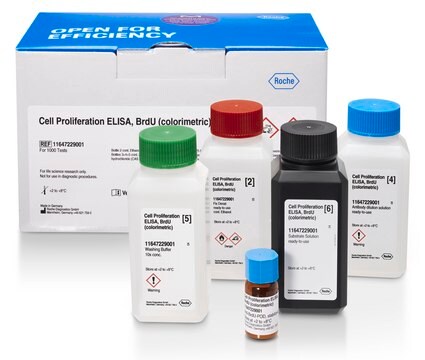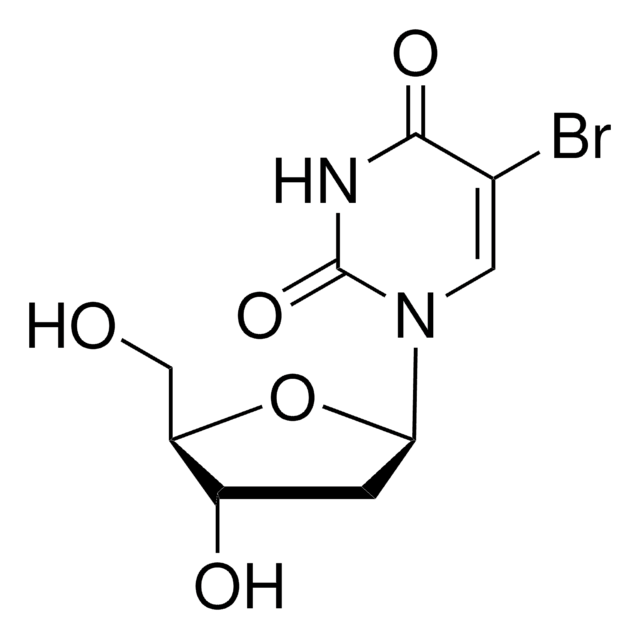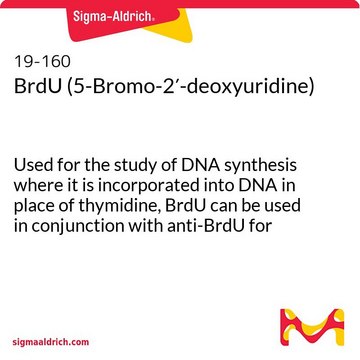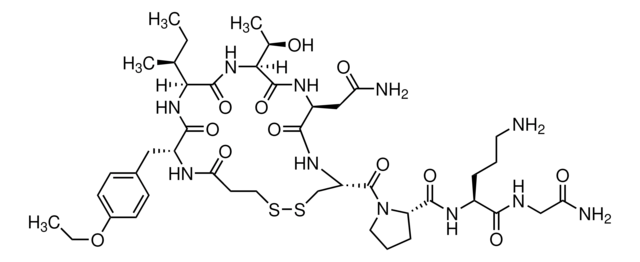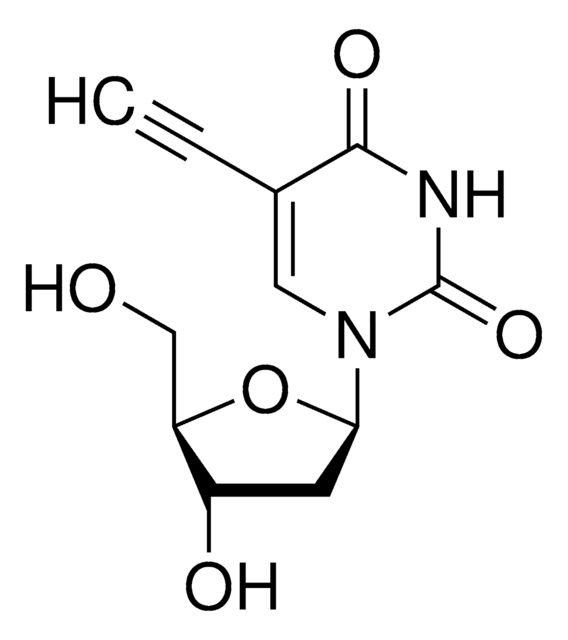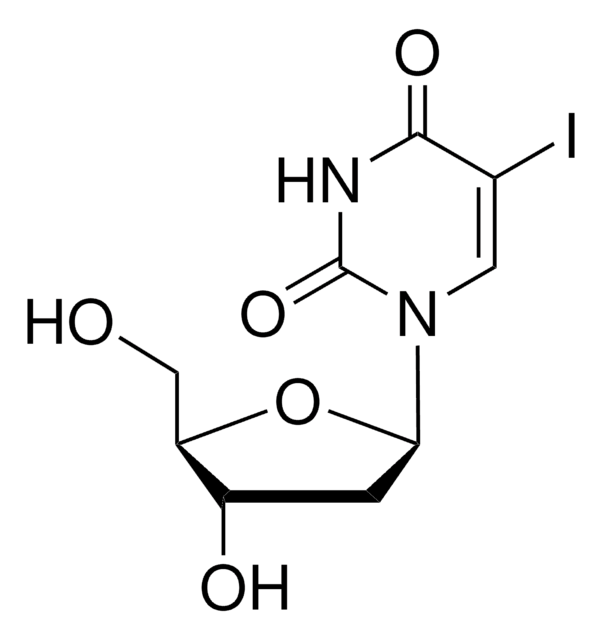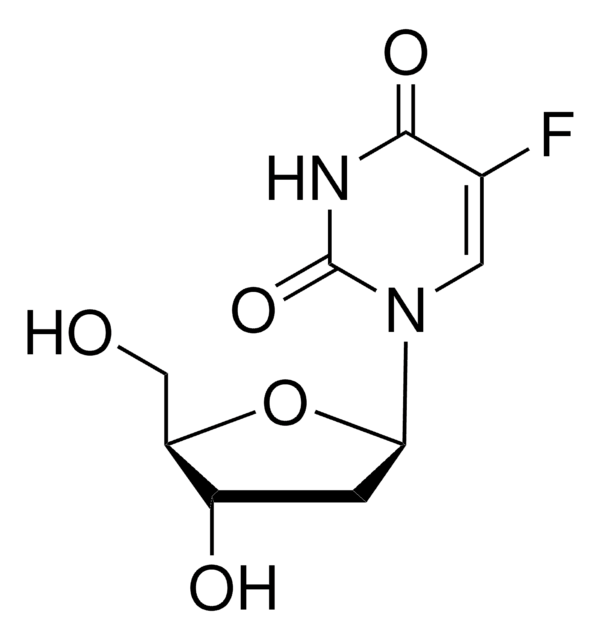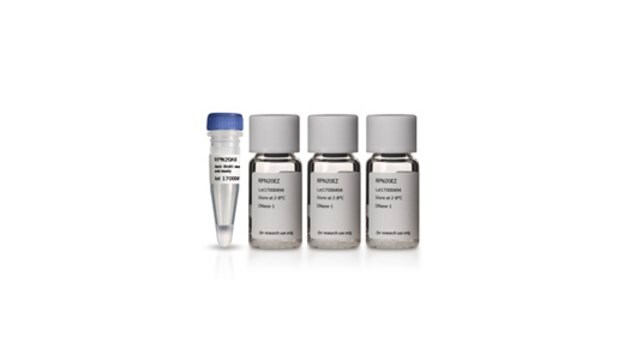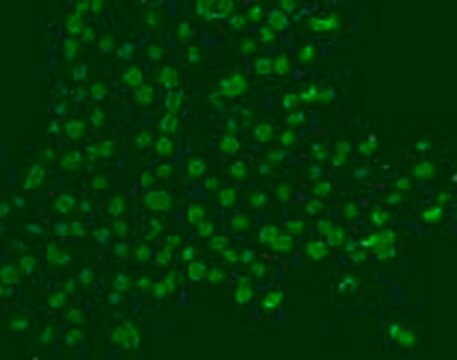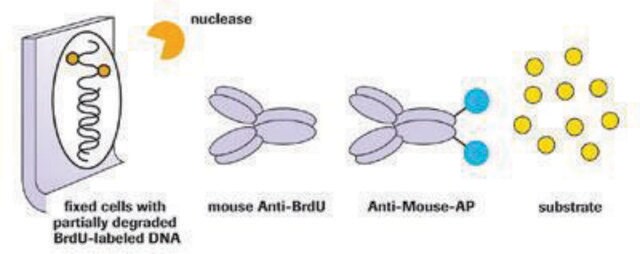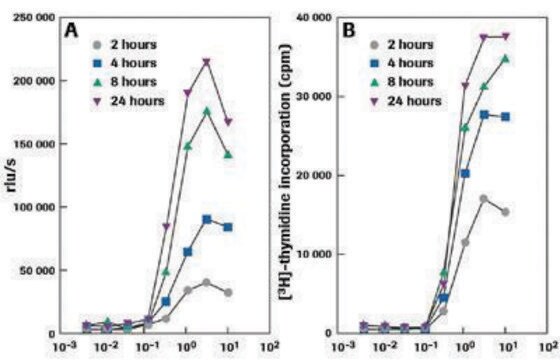B5002
5-Bromo-2′-deoxyuridine
≥99% (HPLC)
Synonym(s):
5-BrdU, 5-Bromo-1-(2-deoxy-β-D-ribofuranosyl)uracil, 5-Bromouracil deoxyriboside, BUdR
About This Item
Recommended Products
biological source
synthetic (organic)
Quality Level
Assay
≥99% (HPLC)
form
powder
mp
191-194 °C (dec.) (lit.)
solubility
DMSO: 50 mg/mL, clear, colorless to very faintly yellow
storage temp.
−20°C
SMILES string
OC[C@H]1O[C@H](C[C@@H]1O)N2C=C(Br)C(=O)NC2=O
InChI
1S/C9H11BrN2O5/c10-4-2-12(9(16)11-8(4)15)7-1-5(14)6(3-13)17-7/h2,5-7,13-14H,1,3H2,(H,11,15,16)/t5-,6+,7+/m0/s1
InChI key
WOVKYSAHUYNSMH-RRKCRQDMSA-N
Looking for similar products? Visit Product Comparison Guide
Related Categories
Application
- as a supplement to study the effect of electroconvulsive seizures on hippocampal neurogenesis
- as a supplement to study the loss-of-gene function in adult zebrafish heart
- in T lymphocyte proliferation assay{133]
Biochem/physiol Actions
also commonly purchased with this product
Signal Word
Danger
Hazard Statements
Precautionary Statements
Hazard Classifications
Muta. 1B - Repr. 2
Storage Class Code
6.1C - Combustible acute toxic Cat.3 / toxic compounds or compounds which causing chronic effects
WGK
WGK 2
Personal Protective Equipment
Certificates of Analysis (COA)
Search for Certificates of Analysis (COA) by entering the products Lot/Batch Number. Lot and Batch Numbers can be found on a product’s label following the words ‘Lot’ or ‘Batch’.
Already Own This Product?
Find documentation for the products that you have recently purchased in the Document Library.
Customers Also Viewed
Articles
Regulation of the cell cycle involves processes crucial to the survival of a cell, including the detection and repair of genetic damage as well as the prevention of uncontrolled cell division associated with cancer. The cell cycle is a four-stage process in which the cell 1) increases in size (G1-stage), 2) copies its DNA (synthesis, S-stage), 3) prepares to divide (G2-stage), and 4) divides (mitosis, M-stage). Due to their anionic nature, nucleoside triphosphates (NTPs), the building blocks of both RNA and DNA, do not permeate cell membranes.
Our team of scientists has experience in all areas of research including Life Science, Material Science, Chemical Synthesis, Chromatography, Analytical and many others.
Contact Technical Service